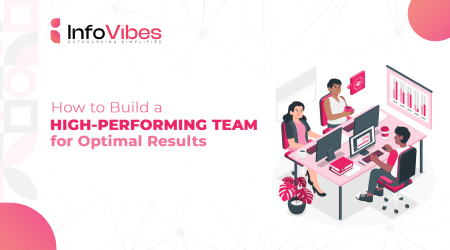OpenERP vs. Odoo: Which ERP is Right for Your Business?
Selecting the right Enterprise Resource Planning (ERP) system is a critical decision that can significantly impact your business operations. If you’re considering a comparison i.e., OpenERP vs Odoo, you’re likely aware that these two solutions are closely related but have distinct differences that could sway your decision. This comprehensive comparison aims to highlight the key features, benefits, and differences to help you determine which option is the most appropriate for your needs.
What is OpenERP?
OpenERP was originally launched in 2005. Answer of what is openerp can be described as it is an open-source ERP solution that quickly gained popularity for its flexibility and extensive range of applications. It was designed to cover all aspects of business operations, including accounting, inventory management, human resources, and more. The open-source nature of OpenERP allowed businesses to customize the software according to their specific needs, making it a highly versatile tool.
Key Features of OpenERP:
- Modularity: A suite of applications that can be added or removed based on business requirements.
- Flexibility: Highly customizable with a range of third-party integrations.
- Community Support: Backed by a strong community of developers contributing to continuous improvement.
Introducing Odoo
In 2014, OpenERP underwent a significant rebranding and was relaunched as Odoo. This change was more than just a name update; it marked an evolution in both functionality and user experience. Odoo maintained the core values of OpenERP but introduced a more user-friendly interface, additional features, and a new pricing model.
Key Features of Odoo:
- User Experience: A modern, intuitive interface that enhances usability.
- Comprehensive Suite: Over 30 main applications and more than 16,000 third-party apps in the Odoo app store.
- Scalability: Suitable for small businesses as well as large enterprises.
- Cloud Options: Offers both on-premise, Cloud VPS / Cloud based PaaS .
- Regular Updates: Frequent updates and improvements to keep the software current.
Comparing OpenERP and Odoo; openERP vs Odoo
While OpenERP vs Odoo still share many similarities, their differences are crucial when deciding which is better suited to your business needs. Here is a brief comparison i.e., openerp vs odoo that can give us an insightful demonstration.
Customization and Flexibility
- OpenERP: Highly customizable due to its open-source nature. Businesses can tailor the system to their specific needs, making it very flexible.
- Odoo: Also highly customizable, but offers a more extensive range of built-in applications and third-party integrations that simplify the customization process.
User Interface
- OpenERP: Functional but somewhat dated interface. It requires users to invest time in learning how to navigate the system.
- Odoo: Modern and intuitive interface designed to maximize user engagement and ease of use. The learning curve is significantly lower compared to OpenERP.
Features and Applications
- OpenERP: Offers a wide range of modules covering essential business functions. Customization through community contributions is a significant advantage.
- Odoo: Expands on the modules available in OpenERP and includes over 30 core applications and thousands of additional apps. The extensive app store means businesses can easily add new functionalities as they grow.
Community vs. Enterprise Editions
- OpenERP: Primarily community-driven with a strong focus on open-source development.
- Odoo: Provides both community (free) and enterprise (paid) editions. The enterprise edition offers additional features, services, and support, catering to businesses that require more robust solutions.
Cost
- OpenERP: Being open-source, it is free to use. However, businesses may incur costs related to customization, implementation, and maintenance.
- Odoo: Offers a free community edition and a paid enterprise edition. The cost of the enterprise edition depends on the number of users and applications, but it includes additional support and features.
Implementation and Support
- OpenERP: Relies heavily on community support for troubleshooting and updates. Implementation can be more hands-on and time-consuming.
- Odoo: Provides official support for the enterprise edition, making the implementation process smoother and more efficient. The company also offers professional services for setup and training.
Conclusion and Recommendations
Choosing between OpenERP and Odoo ultimately depends on your business’s specific needs and circumstances.
- Choose OpenERP if:
- You are a small to medium-sized business with limited budget.
- You need a highly customizable solution and have the technical expertise to manage it.
- You prefer a community-driven support model.
- Choose Odoo if:
- You are looking for a modern, user-friendly interface and a comprehensive suite of applications.
- Your business requires scalability and frequent updates to keep up with industry standards.
- You prefer having access to official support and additional features through a paid enterprise edition.
Both OpenERP and Odoo are powerful ERP solutions that can help streamline your business operations. By understanding their key differences and evaluating your business needs, you can make an informed decision that will support your long-term goals.
[/vc_column_text][/vc_column][/vc_row]













Comments (2)
Thanks for sharing.
Choosing between OpenERP and Odoo is like picking between two quirky siblings! OpenERP is the flexible DIY expert, perfect for those who love customization, while Odoo is the sleek, tech-savvy sibling with a user-friendly interface and tons of apps. Whichever you choose, you’re in for a fun ride in the ERP world!